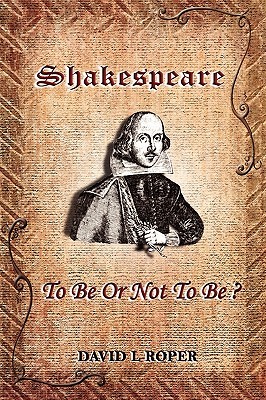
- We will send in 10–14 business days.
- Author: David Leonard Roper
- Publisher: Orvid Editions
- Year: 2010
- Pages: 344
- ISBN-10: 0954387325
- ISBN-13: 9780954387327
- Format: 15.2 x 22.9 x 1.8 cm, minkšti viršeliai
- Language: English
- SAVE -10% with code: EXTRA
Reviews
Description
This book examines and analyses the evidence proposed in support of Shakespeare as the author of the plays and poems published under that name. The evidence is compared to the alternative proposal that Shakespeare acted as an allonym for the Earl of Oxford, whose homo-erotic Sonnets addressed to the teenage Earl of Southampton, and the plays characterizing members of Elizabeth's court, made it imperative that he should not be identified with their content. Confirmation of this truth is confirmed by Jonson, Nashe, Chettle, Thorpe, Marsden, and Digges, who relied upon innuendo, puns, and the latest discovery in cryptology by the mathematician, Cardano, to assert what had happened. In this age of censorship, William Camden also confirmed the existence of a conspiracy by the present powers to extinguish this memory from future generations.
EXTRA 10 % discount with code: EXTRA
The promotion ends in 22d.05:34:06
The discount code is valid when purchasing from 10 €. Discounts do not stack.
- Author: David Leonard Roper
- Publisher: Orvid Editions
- Year: 2010
- Pages: 344
- ISBN-10: 0954387325
- ISBN-13: 9780954387327
- Format: 15.2 x 22.9 x 1.8 cm, minkšti viršeliai
- Language: English English
This book examines and analyses the evidence proposed in support of Shakespeare as the author of the plays and poems published under that name. The evidence is compared to the alternative proposal that Shakespeare acted as an allonym for the Earl of Oxford, whose homo-erotic Sonnets addressed to the teenage Earl of Southampton, and the plays characterizing members of Elizabeth's court, made it imperative that he should not be identified with their content. Confirmation of this truth is confirmed by Jonson, Nashe, Chettle, Thorpe, Marsden, and Digges, who relied upon innuendo, puns, and the latest discovery in cryptology by the mathematician, Cardano, to assert what had happened. In this age of censorship, William Camden also confirmed the existence of a conspiracy by the present powers to extinguish this memory from future generations.


Reviews